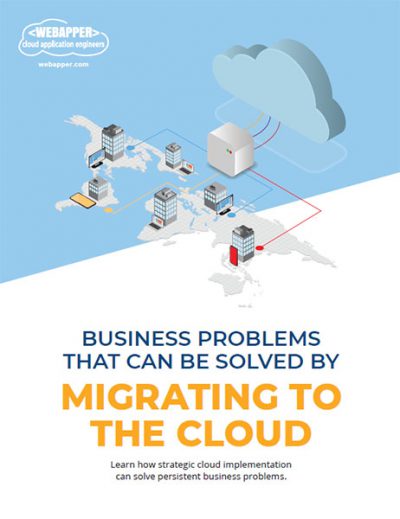How Managed Hosting Can Help Your Organization
Managed hosting can provide great value for organizations that want a secure, reliable, and efficient online presence. It frees up internal IT resources from tasks that may even fall outside their expertise. One size does not fit all, and not all Managed Service Providers (MSPs) offer the same levels of service (hint: you often get what you pay for). It’s important to evaluate the advantages and disadvantages of managed hosting to determine if it’s the right choice for you.
Managed Hosting Defined
Hosting companies who handle the setup, administration, management, and support of an application environment are called Managed Service Providers. A range of services include updates and patching, around the clock support, infrastructure management, basic security, and performance monitoring. MSPs stive to maximiaze uptime, performance, and scalability. Managed hosting is ideally suited for organizations who want a hassle-free experience with technical support, maintenance, security, and cost-effectiveness. You will often choose between two levels of service:
- Active: MSP proactively resolves issues before your request.
- Passive: MSP reactively responds to your requests.
The Perils of Unmanaged Hosting
Although many organizations may experience few problems, unmanaged hosting can go bad. You may experience poor performance, security vulnerabilities, and limited scalability.
Outages
One of the complaints we hear most about unmanaged hosting is downtime. Given the potential reliability of cloud services with self-healing systems, uptime shouldn’t be a worry.
Poor Performance
If demand for your systems grows, you’ll want to easily scale up. In unmanaged hosting, the host is not paying attention. Unmanaged hosting customers are responsible for configuring their server and optimizing their website’s performance.
Cyber Threats
We mention security often around here — it should be baked into the cake. But in an unmanaged environment, that onus falls on your (overworked) IT team. Cber attacks can include malware, phishing, and hacking.
Poor Support
Your hosting provider only offers basic server space, making you responsible for most technical aspects of your environment. Over the years, we’ve lived through and heard countless stories of poor technical support from hosting providers. And it’s starting to feel like everything is a chatbot…
Missing Backups
With unmanaged hosting, you are responsible for backing up your own data. You risk losing important data in the event of a server failure.
Advantages of Managed Hosting
Cost Savings over Data Centers
Companies that migrate from their own data centers to a managed service provider often reduce their overall cloud costs. Aside from lower capital expenditures, you benefit from outsourced MSP staffing.
Skilled Experts
While your IT team may be experts in your application, they may lack experience with infrastructure provisioning and management. MSPs bring deep practical experience to each project.
Uptime
AWS works to ensure a Monthly Uptime Percentage (defined below) of at least 99.95% for services. Such SLAs incentivize MSPs to maximize uptime (to avoid financial penalties!).
Performance
An MSP can optimize a virtual environment for specific performance requirements and make adjustments when needed. Monitoring helps keep provisioning on track, and self-healing systems can be enabled to scale with demand.
Focus
Many organizations outsource IT functions so they can focus on innovation. Outsourcing frees up precious IT resources to manage everyday operational duties. Maintenance of infrastructure is no longer an overhead.
Backups & Enhanced Security
Managed hosting providers typically offer regularly scheduled backups and advanced security features, including firewalls, DDoS protection, and malware scans, to protect against business interruption.
Technical Support
MSPs offer around the clock technical support. If you encounter technical issues, they will help you resolve them.
Maintenance
MSPs perform maintenance, including software updates, security patches, and hardware upgrades to keep your environment running smoothly.
Cost-Effective
Managed hosting is more expensive than shared hosting, but it can be more cost-effective because you don’t have to retain an IT team to manage your infrastructure.
Disadvantages of Managed Hosting
Comparative Costs
MSPs charge a premium for the peace of mind they provide. If you have minimal needs, your comparative costs may not align well with managed hosting.
Vendor Lock-In
It can be difficult to switch providers or move to a different hosting solution after investing time and resources with an MSP.
Less Control
You may have limited control over aspects of your hosting environment. You may become dependent on the provider to manage your hosting environment.
Choosing a Managed Hosting Provider
Choosing a managed hosting provider is a business decision that can significantly impact the performance, reliability, and security of your application. Look for a hosting provider that offers managed services so you can leave technical details to experts and focus on your core business (full disclosure — we are an MSP). Security is another critical factor to consider — find an MSP that offers advanced security services. Most importantly, make sure the provider offers responsive and knowledgeable support via multiple channels. Ideally, check references, read reviews, and look for case studies of similar organizations.
Managed Hosting Can Help Your Organization
Managed hosting providers handle the setup, administration, management, and support of your application environment. Organizations that want a hassle-free experience can enjoy advantages such as cost savings, uptime, performance, flexibility and expert support. When choosing a managed hosting provider, it is important to consider factors such as services and support offered.



Leave A Comment